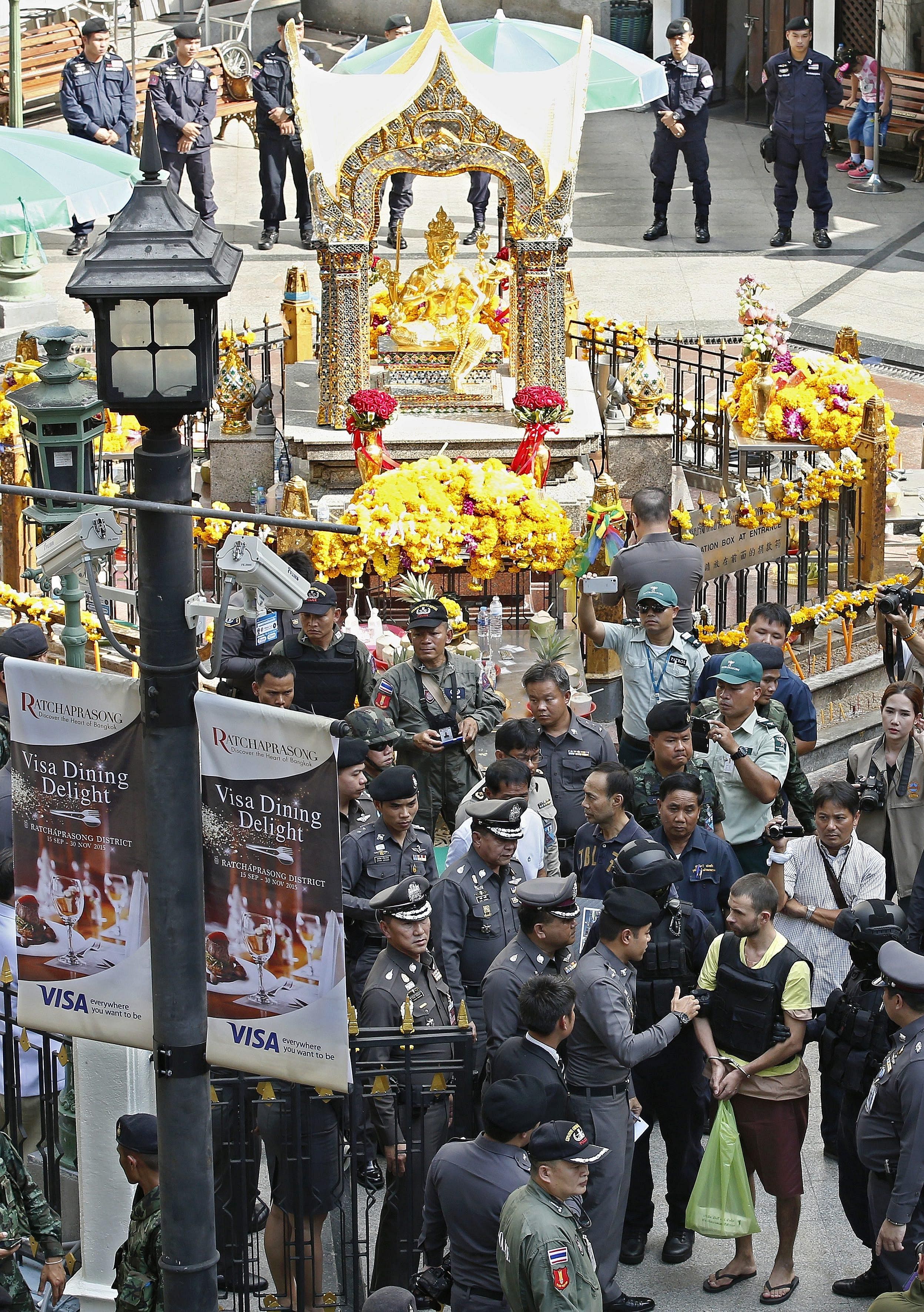On Aug 17, a highly sophisticated improvised explosive device (IED) containing TNT and ball bearings exploded at the Erawan Shrine in Bangkok, a popular landmark located in one of the busiest intersections of the city.
Ultimately, the explosion killed 20 people and injured 130. On Aug 18, another IED exploded beside a pier in the Chao Phraya River not far away. CCTV footage revealed that the subject holding the second device deliberately kicked it into the water for reasons which remain unclear. There were no victims from the second IED.
The bombing at the Erawan Shrine has been called the worst bombing in Thai history. While it is the responsibility of the national authorities to establish the identity of the perpetrators and the motivation for the attack, from the international legal perspective there can be little doubt about it being a terrorist incident. Article 2 of the International Convention for the Suppression of Terrorist Bombing, to which Thailand is a state party, makes it clear that detonating a bomb in, into or against a place of public use with the intent to cause death or serious injuries or destruction should be considered a terrorist criminal offence.
The distinction is not just semantic. Under international law, a number of mechanisms and obligations come into play when a crime is recognised as being terrorist in nature. These can help with investigations: Expediting assistance from other states, for example, or enabling the immediate freezing of terrorist assets, or establishing the grounds for jurisdiction over crimes, particularly in cases where more than one state has a direct interest in the investigation. Recognising a crime as a terrorist incident guarantees that no state can refuse international cooperation by alleging that it was a political act (as has happened with past investigations of terrorist acts in different parts of the world), and that the crime will be punished severely. No less important, it also gives the appropriate recognition to the victims of those acts.

The Bangkok bombings are a reminder that South-east Asia remains vulnerable to terrorism. Terrorism can occur anywhere, anytime and without warning. It is precisely the unpredictable nature of terrorism that makes a proactive counter-terrorism strategy - and focusing on prevention rather than reaction - important.
The key concept is "preparedness". Rather than lament the casualties after an attack, it is always better to assume that a terrorist act can happen and to plan for that eventuality with a robust counter-terrorism framework respectful of the rule of law and human rights.
Governments should also avoid overreacting. A disproportionate response to terrorism that unduly restricts human rights and fundamental freedoms of non-perpetrators is not only ill-advised and possibly illegal, but also prone to aggravating the problem by fuelling the very views and grievances which are very often the underlying justification for terrorism.
An effective response to terrorism should be proportionate and timely, with adequate human rights safeguards carefully crafted into counter-terrorism policies and tactics, and should also address underlying conditions in a systematic way. The Erawan attack also highlights the transnational nature of terrorism. Among the dead were six Thais, seven Chinese, five Malaysians, one Singaporean and one Indonesian. At least 12 states had a citizen among the injured.
The investigation also led to the seizure of forged foreign passports and arrests of suspects outside Thailand. This international dimension reinforces the fact that no country can deal with terrorism alone. Regional cooperation and coordination, including in cooperation with organisations like Asean, by protecting borders, and by the timely sharing of intelligence and operational information, is essential to prevent and suppress terrorism.
Finally, if attacks do occur, countries need to have mechanisms in place to react quickly to ensure perpetrators are brought to justice. Effective and fair investigations that focus on victim protection are essential.
The Aug 17 and 18 attacks in Bangkok clearly show that there is much left to be done before the South-east Asian region is ready for, and can react effectively to, terrorist incidents.
Governments need to be prepared to move quickly to work together, and with regional and international organisations, to ensure their response is both effective and recognised.
- Mr Hernan Longo is a United Nations Office on Drugs and Crime (UNODC) Regional Counter-Terrorism Adviser for South-east Asia and Mr Jeremy Douglas is the UNODC Regional Representative for South-east Asia and the Pacific.
An earlier version of this story did not credit Mr Jeremy Douglas as a co-author of this article. We are sorry for the error.
